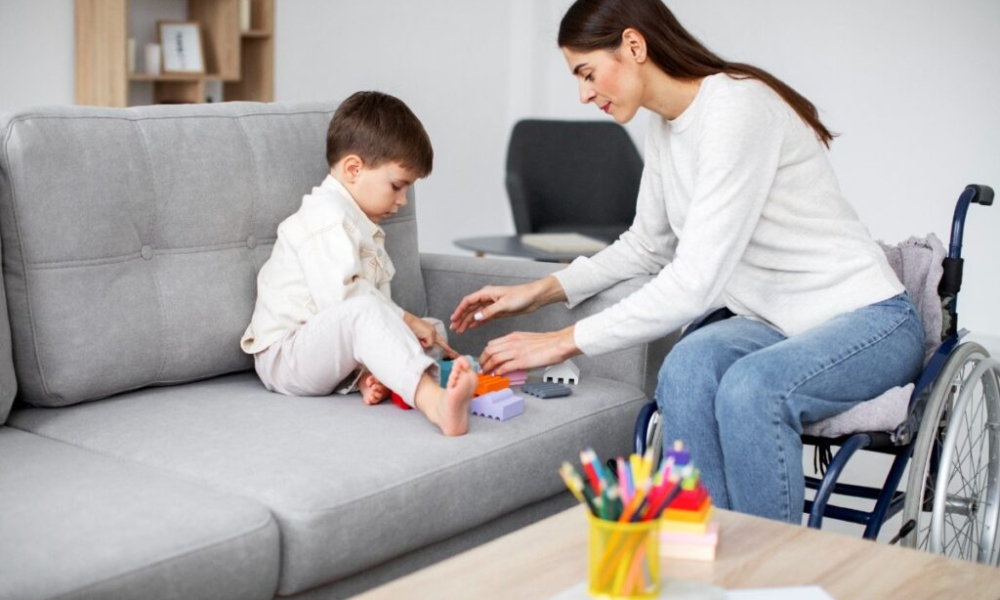- By Z Best Homecare
- Children with Special Needs
- 0 Comment
Children with special needs thrive in environments that provide stability, understanding, and tailored support. Whether at home, school, or in the community, creating a nurturing space plays a crucial role in their development, confidence, and overall well-being. This guide explores the essential steps families, caregivers, and educators can take to build a truly supportive environment for children with special needs.
Understanding the Needs of Children with Special Needs
Every child is unique, and those with special needs require personalized care and attention. Special needs may include conditions such as:
✔ Autism spectrum disorder (ASD)
✔ Attention deficit hyperactivity disorder (ADHD)
✔ Down syndrome
✔ Cerebral palsy
✔ Learning disabilities
✔ Speech and language disorders
✔ Sensory processing challenges
By recognizing their individual strengths and challenges, families and caregivers can create environments that empower these children to succeed.
Creating a Supportive Home Environment
A stable and encouraging home environment is the foundation for a child’s success. Here’s how families can make their homes more inclusive and supportive:
✔ Establish Routines: Predictable daily schedules help children feel secure and reduce anxiety.
✔ Create a Safe Space: Designate a calm, sensory-friendly area where children can relax and self-regulate. ✔ Use Visual Aids: Picture schedules, charts, and labels help children understand expectations and transitions.
✔ Encourage Open Communication: Use verbal cues, visual tools, and assistive communication devices to foster understanding.
✔ Promote Independence: Encourage self-care skills by breaking tasks into manageable steps with positive reinforcement.
Enhancing Learning in School Settings
Schools play a critical role in supporting children with special needs. Educators and parents can collaborate to create an inclusive learning experience:
✔ Individualized Education Plans (IEPs): Work with educators to develop customized learning plans that meet each child’s needs.
✔ Specialized Teaching Strategies: Use multi-sensory approaches, hands-on learning, and adaptive technology to enhance comprehension.
✔ Supportive Peer Interactions: Encourage social skill development through structured group activities and peer mentoring programs.
✔ Accommodations and Modifications: Provide alternative testing methods, extra time for assignments, and flexible seating arrangements.
✔ Regular Communication with Teachers: Stay informed about academic progress and collaborate on strategies for improvement.
Building Community Support and Inclusion
A child’s success extends beyond home and school; community involvement plays a vital role in their development. Here’s how communities can be more inclusive:
✔ Accessible Recreational Programs: Enroll children in sports, arts, and social activities designed for all ability levels.
✔ Parent and Caregiver Support Groups: Connect with other families navigating similar challenges to share advice and resources.
✔ Public Awareness and Advocacy: Encourage inclusive policies, disability awareness programs, and accessibility improvements in local facilities.
✔ Encourage Socialization: Arrange playdates, outings, and structured group interactions to build friendships and communication skills.
Emotional and Mental Well-Being
Supporting a child’s emotional health is just as important as their physical and educational development. Strategies to foster emotional resilience include:
✔ Encouraging Self-Expression: Allow children to express themselves through art, music, and storytelling. ✔ Providing Positive Reinforcement: Praise efforts and achievements to build confidence and motivation. ✔ Teaching Coping Strategies: Introduce mindfulness, breathing exercises, and relaxation techniques to help manage stress.
✔ Seeking Professional Support: Consult therapists, counselors, or behavioral specialists when needed.
Conclusion
Creating a supportive environment for children with special needs requires collaboration, patience, and understanding. Whether at home, in school, or in the community, every effort made toward inclusion and support can significantly enhance a child’s quality of life.
At Z Best Home Care, we are dedicated to providing compassionate care and resources for families with children who have special needs. If you need expert guidance or personalized home care services, contact us today to learn more about how we can help.

